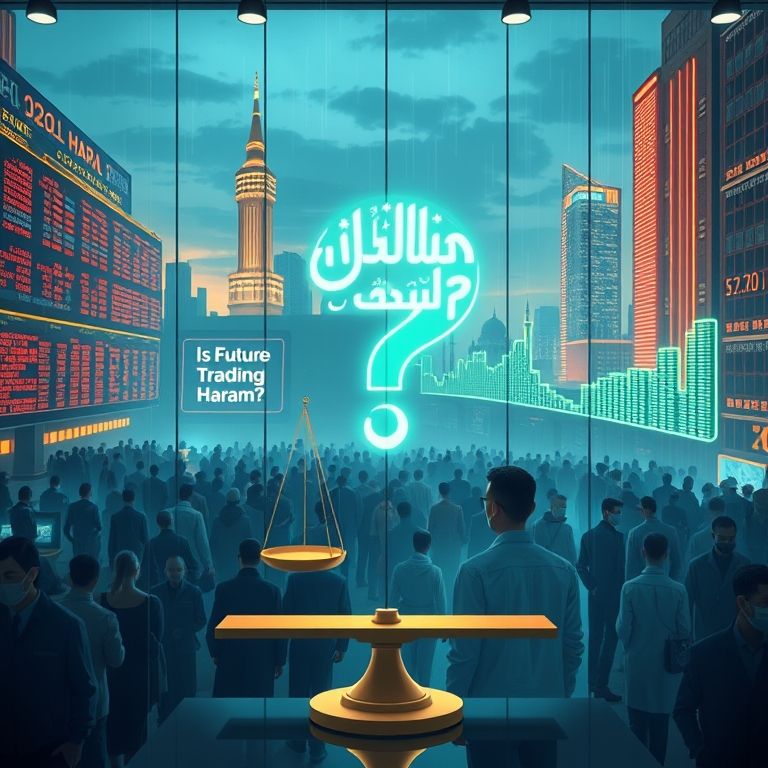is future trading haram
Is Future Trading Haram? Navigating Faith, Finance, and the Web3 Trade Floor
Introduction
If you’ve ever clicked through a dashboard at dawn or listened to a trader’s late-night recap, you know markets rise and fall with gravity and emotion. The big question for many Muslim traders is: is future trading haram? This article digs into the debate, then lays out practical paths for navigating multiple assets—forex, stocks, crypto, indices, options, commodities—using modern tools, DeFi, and AI-driven insights. Think of it as a compass for faith-aligned, tech-enabled trading.

Understanding the Haram Debate
- Core idea: contracts should avoid excessive uncertainty (gharar) and interest (riba). Futures often involve leverage and speculation, which some scholars deem haram, while others permit hedging or non-speculative intent with careful contract design.
- Practical takeaway: framing matters. If a trader’s objective is price protection or business hedging rather than pure speculation, there are Shariah-compliant structures that some scholars consider permissible. Always consult a qualified advisor and your community’s guidance before trading.
What Future Trading Looks Like Today
- The Web3 lens: perpetuals and synthetic assets on crypto rails mirror traditional futures, but with faster settlement cycles, on-chain custody, and open-access liquidity.
- Real-world flow: many funds and retail traders use futures to manage risk, amplify returns, or gain exposure to assets like gold or tech indices without owning the underlying asset.
Asset Classes: Insights and Cautions
- Forex and stocks: liquid markets with mature risk controls; watch for leverage and margin calls.
- Crypto and commodities: dynamic, innovative, but more prone to gaps and hacks; diversify risk across assets.
- Indices and options: offer broad exposure and defined risk windows; use spreads or hedges to temper exposure.
Leverage, Risk Management, and Reliability
- Leverage strategy: stay conservative—2x to 5x for most retail traders; higher leverage demands strict stop losses and position sizing based on a fixed risk percentage.
- Reliability practices: use verified, audited platforms; separate wallets for custody; set hard stop orders and real-time risk dashboards; backtest strategies with walk-forward analysis.
- Faith-aware approach: design rules that emphasize protection of capital and avoidance of gambling-like behavior.
Tech, Security, and Charting Tools
- Security: multi-signature wallets, hardware custody, and reputable exchange ecosystems reduce risk; enable two-factor authentication and withdrawal whitelists.
- Tools: charting with TradingView, on-chain analytics, and risk calculators help visualize setups, volumes, and correlations.
- Everyday use: a trader can blend live price feeds, macro cues, and liquidity metrics to decide when to hedge or exit.
DeFi: Opportunities and Challenges
- Decentralized derivatives are growing, with smart-contract reliability and transparent pricing. They enable programmable hedges and open access, but come with smart contract risk and liquidity fragmentation.
- Challenge areas: regulatory clarity, cross-chain latency, and potential gas-cost spikes. A solid plan combines on-chain tools with off-chain risk controls.
The Road Ahead: AI, Smart Contracts, and Compliance
- Smart contracts automate rules-based trading and hedging, making enforcement simpler and more transparent.
- AI-driven signals and position sizing can improve consistency, provided you combine them with human judgment and rigorous risk rules.
- Compliance note: as rules evolve, align your strategy with clear disclosures, fair practices, and transparent performance reporting. That alignment helps address the core concern of whether futures trading fits within one’s faith framework.
Slogans and Closing Thoughts
- Is future trading haram? Clarity comes from questions, not quick wins—trade with intent, audit trails, and disciplined risk.
- Trade with faith and foresight: “Know the edge before you trade—haram or halal, your choices shape your financial path.”
- In today’s web3 era, you can pursue diversified exposure—forex, stocks, crypto, commodities—while leveraging tech, security, and smart contracts to trade more consciously.
If you’re exploring this path, start with a small, well-tested plan, consult trusted advisors, and stay curious about both the faith implications and the evolving tools that support responsible, informed trading.